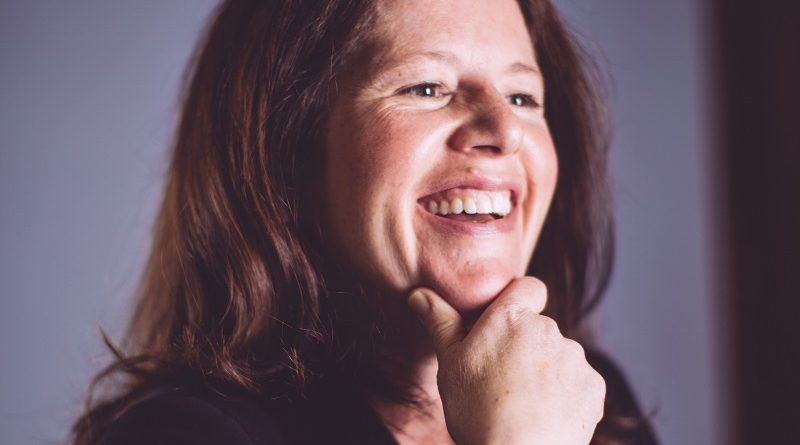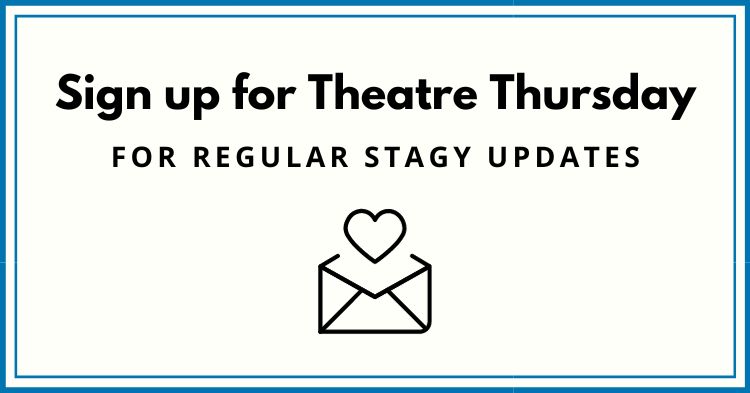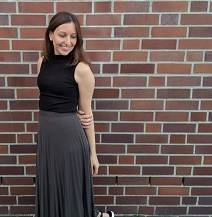Spotlight on Rachael Carnes: Playwright Edition
In Theatre Trip’s “Spotlight On” series, we’re chatting with some of the most interesting people in the industry. And today we’re doing a special feature on Rachael Carnes – a playwright, journalist, and arts educator from Eugene, Oregon!
Rachael Carnes has spent 20+ years investing in arts integration through her work in educational arts nonprofits. She also coordinates a group of playwrights that’s dedicated to writing and sharing plays in response to gun violence. You can find her work on the New Play Exchange – where she has gotten rave reviews from her readers!
What initially inspired you to become a playwright?
“In the Fall of 2016, my kids were bigger — in fifth and ninth grades — and I decided that I’d always wanted to take a playwriting class, so this was the time. I announced to my family that I was going to sign up for one at my local theatre, and that I’d be busy every Tuesday from 6:30-8:30PM. My family looked at me funny, because of course they didn’t care, and I could have done this long ago. But still, taking that class was a life-changer. Because in it, I figured out that the two things I’d spent my career doing — dance, and freelance journalism — if you put them together, kinda-sorta equaled playwriting. I started writing plays, and I just kept writing them.”
Do you have any tips for finding inspiration as a writer? Or overcoming “writer’s block”?
“I don’t struggle with ideas, or getting an initial sketch down on a page. My downfall is in the rewrite process. Most of my short plays are one take. I just put them on paper, with no revisions except for fixing typos. But longer stuff needs more support, and I’d rather run through the meadow of a first draft than slog through second and third and fourth passes on familiar territory. But I had a playwriting mentor who offered me some great advice. She said that before rewriting anything, to read it over, three times in a row, without changing one word. By the time I’ve done that, I am itching to get into the revisions, and I have a firmer vision of where I need to get to. That’s been working for me as I try to get better at writing longer pieces.”
“Read as many plays as possible. Not just the classics, those are great, but contemporary, new, unpublished and oftentimes unproduced work. There’s just so much to be learned from reading new work.”
What advice would you give to those who are aspiring to write professionally?
“Firstly, write. Write every day, a little, if you can. We’re all super busy, but plays are a rewarding literary format. It’s not like you’re trying to generate the next great American novel. Even a full-length play might lock in around only 10,000 words, maybe less. Some of my most popular short plays, I wrote in less than an hour.
I’d also advise any playwright to read as many plays as possible. Not just the classics, those are great, but contemporary, new, unpublished and oftentimes unproduced work. There’s just so much to be learned from reading new work. I read a play on New Play Exchange every day. This habit has not only taught me a tremendous amount about writing, but opened up a world of friendships with other writers.
And if you’re writing, and you’d like to get your work out there, then you have to submit it. When I took a workshop on play submissions, the facilitator said, “It’s a numbers game” — and she was right. When you start submitting work, you will be rejected. Plenty! So, you’ll get a thicker skin and you’ll just keep submitting, because when your play lines up with what a theatre is looking for and you get that lovely, “Congratulations!” email… you’ll be glad.”
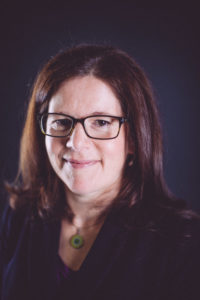
What are some common myths about your profession?
“When I started to work with playwrights who served as mentors and teachers, what struck me was how generous and kind they were. There’s a myth of the isolated, starving artist, or the competitive recluse who just wants success for him/herself. Not so — the playwrights I’ve worked with and met, in conferences and festivals, in collaborative projects and in daily communication, are some of the warmest, friendliest and most helpful people on the planet.”
Is there a play that particularly resonates with you?
“Maybe not one in particular. It’s too hard to choose! But I am excited to see a wave of inclusive representation in theatre, and I hope that we will continue to hear more and more from writers and artists whose diversity reflects this powerful shift.”
What do you enjoy most about being a playwright and educator?
“My favorite aspect of playwriting is building relationships with creative teams. If a play of mine is selected, it is so exciting and fun to work with the producer, director, and the cast, to bring it to the stage. I lead a pretty quiet life. I’m a mom, I work full-time. I run a lot of errands and fold a lot of laundry. But my plays are jetsetters! It’s delightful to know that a play I wrote is up in London or New York City, while I’m at home folding socks.
I taught dance for many years, and I hope to get enough experience under my belt to one day teach playwriting. I recently spoke to a group of high school students about what it was like to be a playwright. And I said that as a writer, I appreciate the daily opportunity I have to learn something I didn’t know before. I’m 47 years old, and I am following a brand-new path. I hope that in playwriting, I’m serving to remind my own kids that we’re never too old to be a novice, and that life is full of surprises.”
“What success looks like to me might be very different than success to someone else. But I think the biggest gift you can give yourself is to remain open to learning the ropes.”
What is the best thing that a theatre student can do to ensure their success?
“Success has a lot of definitions, and for writers, is pretty subjective. What success looks like to me might be very different than success to someone else. But I think the biggest gift you can give yourself is to remain open to learning the ropes. I didn’t even know how to format a play until a year ago. And I didn’t start submitting my work regularly until January 2018.
That said, I love to celebrate an acceptance with a little “happy dance” around my office. And when I get rejections, and I get a lot of rejections, I file that info, too. It’s just data for next time, helping “future” me to know a little more than I did before. If you focus too much on rejections, this could be a pretty frustrating gambit. So, I try to focus on the habits of a writer, as I’ve set them for myself: writing, reading and sending plays, every day. These habits have given me some traction, getting my work out into the world, but over time, it’s also helped me to improve my skills, to “hone my craft”. I’m essentially a self-taught writer, and it’s only through daily sketches and reading that I find myself learning, over time, how to do things.”
“Anyone, of any age, can be a writer.”
You have so many great plays up on the New Play Exchange! If you were to suggest one or two plays for your future fans to start with, which would you want them to read first?
“The play that has received the most critical attention, productions and even publication, is Partner Of —. I wrote it last spring, after grappling with the word “relationship”, in a call for plays on the relationship between Thomas Jefferson and Sarah “Sally” Hemings. I studied the intertwining family tree between the Jeffersons and the Hemings, and learned about this moment in history. Then I sat down and the play just gushed out in one go.
I also write super goofy comedies, like In Training, Sh*t Train, and my favorite, Inertia.”
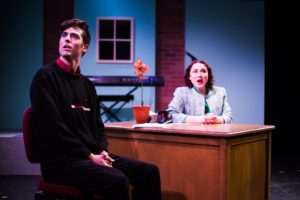
What type of education would you say is necessary for becoming a successful playwright?
“The School of Life. I’m stepping into this art form with a treasure trove of experiences, but anyone, of any age, can be a writer. I am fortunate to have a B.A. in Dance Theatre, but I graduated in 1993. That is a long time ago! No M.F.A…. but so far, that’s not holding me back.”
What’s next for you?
“Looking to 2019, I am thrilled to have been selected for the Women Playwrights’ Initiative at the Ivoryton Playhouse in CT. They’ll be flying me out for a week-long development week for Partner Of—.
I’m also excited that my play Canopy was selected for a staged reading as part of the WriteON Festival, in Cambridge, U.K.
I already have plays queuing up for performances in New York and London — But I’ll be here at home, happily writing, reading, sending out plays… and folding socks.”
What did you think of this interview with Rachael Carnes?
Are any of you working as or aspiring to be a playwright? We would love to hear all about it in the comments below! And in the meantime, you can check out even more exciting interviews with inspiring people in the industry!
Learn More:
Want to stay in the loop with all things related to musical theatre?
Author: Stacy Karyn
Stacy Karyn is the founder of Theatre Trip, author of The Thespian’s Bucket List, and creator of The Cast Album List. She holds a BA in theatre, a TESOL drama certificate, and has worked and interned with Broadway and Off-Broadway theaters.

